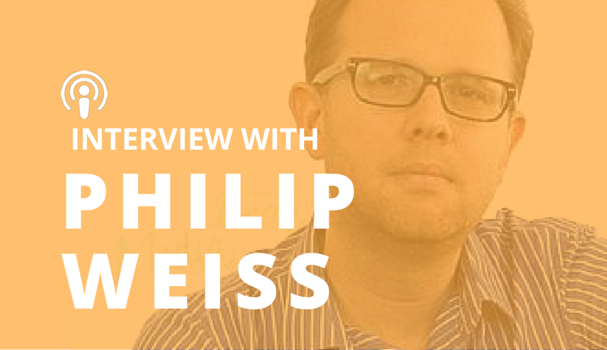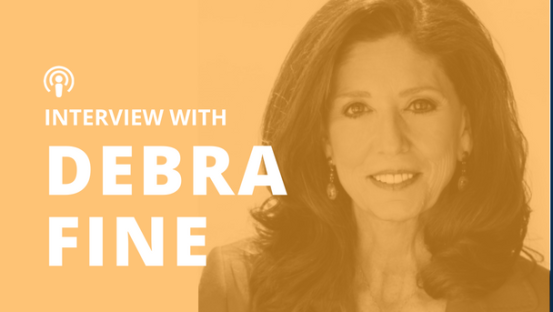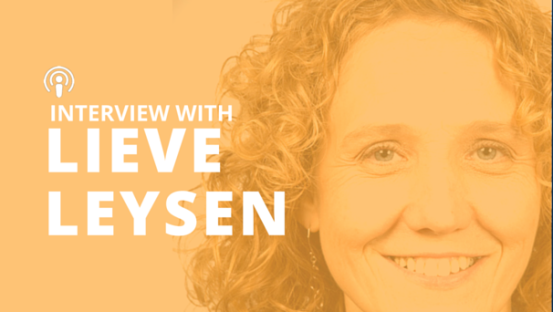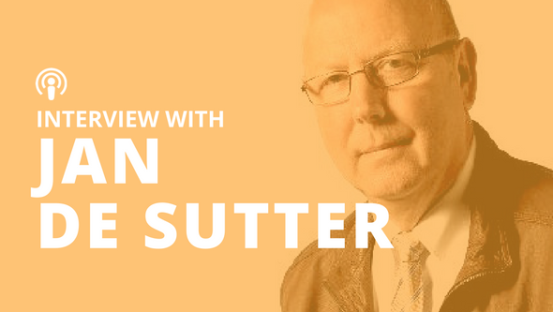Behind the Curtain: Interview with Philip Weiss

"Once you’re able to change perspective, you can start doing things very differently."
In a hyperconnected world, how can organizations keep up? Do you really need to be on SnapChat and on Instagram? What about Pinterest? Most organization find it challenging to know exactly where to connect with their audience. In this interview, we talk with Philip Weiss a strategic thinker, and expert on how companies can navigate through this new world of hyperconnectivity.
Listen to this podcast to find out how a change in perspective can help you connect on new and deeper levels with your audience. Philip shares his insights on how the world of marketing and communication is rapidly changing, and how individuals and organizations can find new and innovative ways to share their ideas and messages.
Interview with Philip Weiss
Q: Can you tell me what topics you speak about?
A: I talk about a range of topics from business and entrepreneurship to digital communication. One of my favorite topics is to talk about mindsets, and how we need to think in this new age of constant change and technology, and that’s what I call “Hyperthinking.”
Q: Tell me a bit about “HyperThinking.” What is it exactly?
A: I realized when I started my business that internet communication was very new for a lot of our clients. And people in big companies don’t often like change, you have these very structured environments, which are actually quite resistant to change.
It wasn’t the amount of money they needed, or the amount of resources, or the right piece of software. It was actually mindset that was the critical ingredient in determining how successful a project was.

How the fastest growing network of speakers and trainers is going to help your agency gain new leads
I tried to say “What is that mindset?” “What are the key ingredients contained in that?” I decided to create a new concept, and capture in that concept the key ingredients for what I would define as success in this ever changing world. I call this HyperThinking.
It has four key dimensions which are HyperShifting, which is shifting paradigms, or looking at things from a new perspective.
HyperLinking, which is using digital networks to connect, to find new customers, new ideas, to communicate, to connect with your community.
HyperLearning, which is really one of the key skills we need in this new environment, which is to be able to learn to learn . The ability to become a self learner, to use all of the tools available to do that, and to learn to think more creatively, so to use creativity tools to develop our creative thinking.
Finally, HyperActing, which is actually about agility, and being able to change. Because most of the time when we have it turns out to be wrong, and we have to adapt it as we go along.
Q: When a company would hire you in, how do you go about assessing what they need, and training them in these different hyper tools?
A: Our business is communication, I have a digitally focused agency. In fact, we now say that digital marketing is now just marketing. Digital communication is now just communication.
Because digital is so important, it has had such an impact on all aspects of communication that basically it permeates every communication program. We work on these programs, and so we approach clients the normal way, when they have a need, they need to communicate something to an audience.
We define a strategy for them. We do some research, we create a plan, we put together a campaign concept. We develop a creative idea to bring together the campaign, and then we help execute the campaign.

Q: What are some of the challenges you’ve come across when it comes to training people in these new communications ideas?
A: I think the key challenge is that these tools are very different, and how to create new opportunities. But they keep changing, they’re quite new.
You’re hearing new technologies all the time. Whether it’s Facebook, Snapchat, or Instagram. Our clients think “How do these things fit? Do they make sense? Do I need to invest in them?”
Our job is to help them understand and assess these tools, and put them together in an organized campaign. I think the biggest challenge is resistance to change, because people don’t like the fact that they’ve been trained a certain way, and suddenly they have to question that, and do things differently.
The second part is to have a really sound strategy, not just something that’s built on the latest fad. You’ve heard about some technology, so you want to do a campaign around it. No, it has to be a sound, strategic business plan. Then you use the right tools to get to your goals.

Q: That’s interesting. It’s not just “I feel like we should be on Twitter because everybody is on Twitter.” It should be “No, this is right for our business, this is the kind of stuff we’re going to post, and this is how it’s going to be useful to that audience.”
A: Yes, absolutely. It’s really important to not do that. I mean there’s nothing worse than a campaign when the CEO bangs on the table and says “We need a Twitter campaign!” when there’s no strategic thinking behind it.
The starting point is “What are we trying to do? Who is the target audience? How can we connect with them? How can we meet our business goals?” Then you say “Okay, well we have a message, we have different channels to reach them, we have different ways to do that.”
Often people get so excited about the new, the latest and greatest technology that they forget the simple but most effective ones. Which are now things like having a good, clear website, having an email database that you use properly. Then on top of that you add social media, Twitter, Facebook, YouTube videos, and things like that. But you have to have the basic things in place so that the rest can work.

Q: I think that makes perfect sense. Philip, can we explore a little about how you got started talking about mindsets?
A: It’s something that I’ve always been fascinated by. I studied philosophy, politics, and economics at Oxford University, and philosophy was one of my subjects I was greatly interested in. I discovered Edward de Bono.
He’s the inventor of lateral thinking, and these are techniques for learning to think differently. He created these simple tools. There’s a book called “Six Thinking Hats,” which is extremely useful and interesting.
I was actually interested in his concepts, and how we can improve our thinking. The thing that we do not learn to do at school or university is to think better. We learn to think about certain things, but we don’t work on the thinking itself. I thought how can we think? How can we transform our mindset? How can we challenge our paradigm, our preconceptions, and look at things from a different perspective? For me it has always been an area of interest.
Then when I started my business I realized that this was a really critical factor of success. Because once you’re able to change perspective, you can start doing things very differently.

Q: Can you give us an example of the effect that this has had, either in your own business, or a business that you’ve worked with?
A: Maybe to give you an example of a recent shift that we’ve done. We’re a digital native agency, so ZN has been around for 17 years now, so it’s quite an old company for this space. As I created the company, and started working on new projects we were looking at how to use the web as a lean and mean tool to challenge big campaign ideas, I was working with agencies that had their traditional model.
The traditional advertising models was you have to come up with a big idea, and you have to do a big advert, and a TV commercial down the line. I thought “Well, that’s all very nice, but the reality is that online it doesn’t work like that.” You have lots of little stories you have to connect with different audiences, and basically it’s a completely different approach. I was very resistant to this.
What I realized now over the years is that in fact the fundamentals of traditional advertising, which are to develop a very strong creative concept around which to build an entire campaign, actually are even more valid to date than they were before.
We’ve made a shift to really bring creativity to the center of what we do, but to reconnect it in a different way to all the digital channels that are available.

Q: Why do you think this is so effective for reaching out to the audiences?
A: The basic thing is that communications itself hasn’t fundamentally changed. I mean the place where it takes place, and the way, the tools, the kind of engagement you can do are very different. But it’s still about having a powerful, emotional concept that connects to your target audience.
The basics are still there, it’s still fundamentally about having a clear strategy, a target audience, being able to reach that target audience. It’s important to remember when you work in highly innovative, highly changing industries, not to forget that there’s certain basic things that you need to be successful. They haven’t necessarily changed, and you shouldn’t be enamored of change for the sake of change.
Q: Philip, can you tell us a little bit more about your company, ZN?
A: Yes. So ZN actually stands for “Zeitgeist Network”. “Zeitgeist” means the spirit of the times in German, but it’s also used in English. It reflects our philosophy of constant change. The company from day one was built on the idea that communication was going to change fundamentally, and was constantly changing.
Instead of saying “It’s all about this piece of technology” or that element, or this new fad, it’s all about being able to understand and adapt to constant change. That’s what the name says about zeitgeist.
The “N” stands for “network”, and it’s for two things. First, because of our focus on digital. We started as a digitally focused agency looking at the impact that digital has on everything else, which has now become a core part of any communication project.
The second thing is our network. We strongly believe in the importance of building a network with the people that we work with.

We put together partnerships with experts, agencies, or freelancers that we bring together so that we’re able to deliver the best possible value for our clients, without having to have mass overheads, and having a lot of flexibility. It’s also a global network. We work with people in Europe, in the US, in India, in Croatia, and we put together the right team based on the projects that we have.
Q: You’re seeing a real mix of all these different cultures, and knowledge bases, and mixing them together with these different names that your clients have. Philip, my last question for today is what’s in store for you for 2016?
A: 2016 is a very exciting, very challenging year. Because we’ve been through this transformation where we’ve tried to refocus on some of the integration I’ve talked about. Because now we’re playing a much more central role with our clients.
We’re not just doing digital as a separate course strategy. That means we really have to bring in that creative. That’s something that we’ve been doing systematically for the last year, which is to bring that creative expertise. We bring people from outside the agency to add this new perspective.
We also are strengthening and deepening our relationships with PR and public affairs partners so that we can really make sure we deliver the full mix of things. I think the expectations for our clients has grown now. They want more than just some clever technological campaigns. They want something that will shift people's perception, that will engage with them emotionally, and that will transform the conversations that they’re involved in. That’s what we want to deliver.
Q: I’d like to thank you for having this conversation with me today.
A: My pleasure. Thank you very much.
A bit about our speaker:
Philip is a marketing innovator. He is a strategic thinker, and internet communication expert, who helps companies around the world come up with new ways of reaching out to their audience.
He is the inventor of a concept called 'Hyperthinking' which teach companies and organizers to learn faster and better. He speaks for corporate and business audiences around the world on range of topic related to disruption, innovation and technology.
Links
- Philip Weisse’s SpeakerHub Profile
- ZN Consulting
- HyperThinker Europe
- Watch this video on HyperThinking
Want more speaking engagements? Sign up as a speaker to SpeakerHub here. Have any feedback about this interview? Please contact us.



